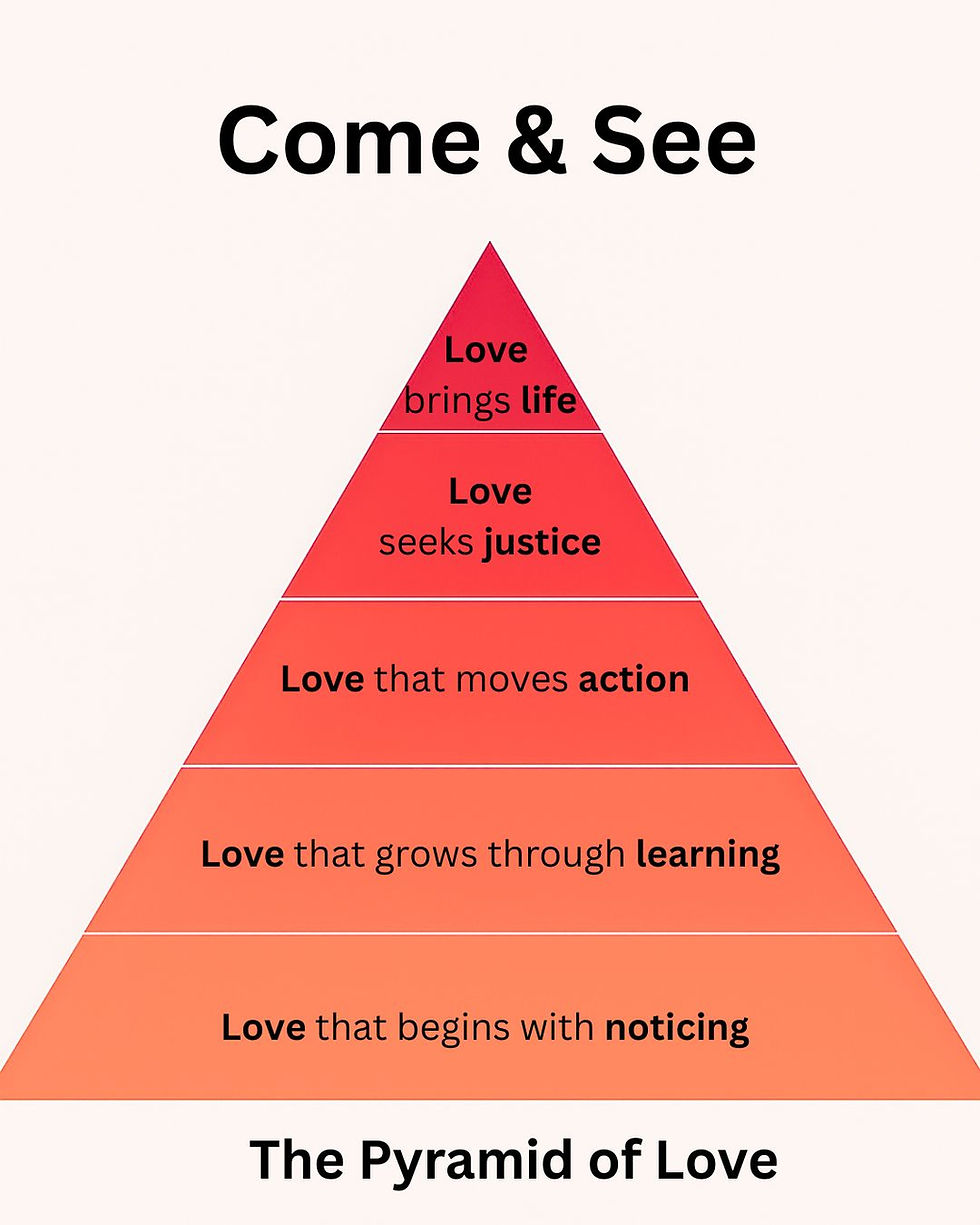Breathing Belief into Being
- yikigai2021

- Jun 25, 2025
- 4 min read
Updated: Jun 27, 2025
Galatians 3 & 5
What Defines How vs. How Defines What
Reflections from the Standalone Bible Study on 6/22/2025

In just seven verses, Galatians 3:23–29 proclaims God’s radical impartiality and the freedom we’ve received by grace through faith. This Sunday, 6/29, we will continue our journey into Galatians 5:1, 13–25, where Paul calls us not merely to celebrate that freedom, but to live it. The fruit of the Spirit isn't abstract. It’s how the Church makes God’s love visible in the world. Our how becomes the living embodiment of the what we proclaim.
During our time of sharing, several deep and searching questions emerged:
How do different methods of equipping religious leaders shape our understanding of God’s impartiality and the biblical message of freedom?
What influences the way we perceive God differently in the Old Testament compared to the New?
How can people of faith faithfully share stories of what God has done in their lives especially when testimony isn’t always uplifted as a vital expression and practice of discipleship?
That third question opened a door to something vital. When we testify to God’s presence in our lives, we’re not simply sharing our theology, we’re stepping into discipleship. Faith doesn’t only travel through doctrine; it often spreads through sacred and personal stories. And when those stories go untold, could it be that our witness, though rich in mission, falls silent where it most needs to speak? Might we be practicing justice without naming the Justifier, the One who longs to be known and trusted?
Remember the story in Luke 8:26–39 we heard last Sunday? Jesus sends the healed man back to his people not with a sermon, but with a story.
I mentioned a book recommended to me by a colleague: Autopsy of a Deceased Church by Thom S. Rainer. While the Church, the body of Christ, can never truly die because Christ is risen, parts of the body can grow weary, insular, or detached from the mission field. Rainer warns against inward focus, nostalgia, and a lack of prayer. But he also offers hope: declining churches can thrive again by recalibrating their how in alignment with their what.
This brings us to a critical crossroads between belief and practice: What defines how? Or does how define what? In this reflection, “what” refers to our beliefs: our doctrine, theology, convictions, and understanding of God’s nature. “How” speaks to the way we live those beliefs: our daily rhythms, priorities, posture toward others, and how we embody the gospel through both action and testimony.
If we perceive the God who invites in the New Testament as merely a continuation of a God who engages primarily through power and judgment in the Old, our theology may stir fear rather than inspire freedom. Our what, our vision of God, can shape a how that alienates rather than welcomes.
But when we begin with the servant Lord Jesus, his hospitality, humility, and healing, our how begins to reshape our what. So perhaps it’s in the how, not only the what, that we learn to follow Jesus more fully and invite others to do the same.
What we know about God should be the bones and sinews of how we engage the world and share the love of Jesus Christ. And our engagement with the world, the way we live, should be the flesh that gives form to what we believe. (Ezekiel 37) It’s like breathing belief into being, that creates a movement, the body of Christ growing and flourishing.
What we know about God should be the bones and sinews of how we engage the world and share the love of Jesus Christ. And our engagement with the world, the way we live, should be the flesh that gives form to what we believe (Ezekiel 37). It’s like breathing belief into being, a movement that nourishes the body of Christ to grow and flourish
We can use many methods to draw people into Christian community. But if our egos or accomplishments become the centerpiece, intended to please or entertain ourselves and others, they may cast a shadow over Christ’s light. And what we’ve done may one day be revealed after the autopsy, not to shame us, but to awaken us.
This is a hard but hopeful call. The Church is not a monument to our success stories, but a living testimony to the grace of God in Christ. The body of Christ is a community where the Spirit breathes, the fruit is shared, and the glory belongs to Jesus alone.
Discussion Questions
In your own words, what does it mean to “live by the Spirit of God” in everyday life?
How have you experienced the power of testimony in your own faith journey?
Can you recall a moment when your what (belief) shaped your how (practice)? Or vice versa?
Are there places where we, as a community, may be dimming Christ’s light, perhaps unintentionally, by drawing attention to ourselves instead of Jesus?
What intentional rhythms or practices can we embrace to make sure our how reflects our what, which is the God we proclaim?
Closing Prayer
God of freedom and impartiality,
Refine our what and renew our how. Let our testimonies echo Your goodness, and may our lives point clearly to Christ. Keep us humble, Spirit-filled, and invitational. Amen.




Comments